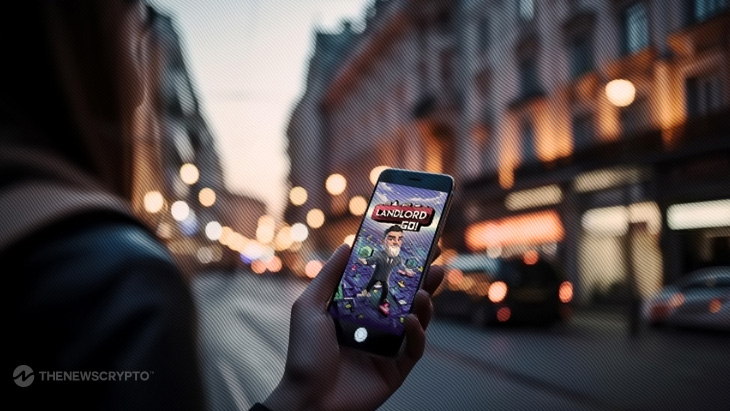Web3 gaming rode the last bull market largely on the back of unsustainable economies. Soon the wheels fell off, the industry fell on its face, and was forced to look at itself in the puddle it fell into.
Axie Infinity is the most notorious example of this. Still considered one of the top Web3 games, the game’s economy has had a rough time—something its chart suggests.
Its economic structure had created a positive feedback loop where tokens were constantly being pumped into the economy with nowhere to be spent. Players could earn SLP, the game’s token, by playing the game or by loaning their axies to other players. Once they earned SLP they had two options: sell their SLP or breed more axies to produce more SLP. This is a sure fire way to create inflation which saw the SLP token drop from $0.39 to $0.01 in just a month.
“By design the Axie economy will be dependent on new entrants,” the Axie Infinity whitepaper admits. To many, this is the definition of a ponzi scheme.
Sky Mavis, the developers of Axie Infinity, attempted to fix the mess that they’d made by adjusting how the economy functioned. Unfortunately, before they could put the wheels back on the wagon they were hacked for over half a billion dollars.
This isn’t an outlier. Both StepN and Illuvium had similar fates with many gamers losing trust in Web3. The founder of Atari, Nolan Bushnell, said that the hatred many gamers have for crypto comes from play-to-earn games pioneering Web3 gaming.
Clearly, the industry needs to learn from its mistakes. Fortunately, Reality Metaverse is one Web3 project pioneering a new sustainable economic model for blockchain gaming.
Reality Metaverse is creating a multi-game ecosystem that uses a sustainable revenue sharing model. Landlord GO, the first game they’ve launched, is a property investing simulator with 30% of the in-app purchases corresponding to the holders of the NFT.
“Reality Metaverse is at a significant stage, having successfully tested our concept with Landlord GO,” Maciej Burno, Head Of Project at Reality Metaverse, said. “Our marketplace is thriving, with a great user experience and a solid model for game developers.”
The model here is sharing the revenue Reality Metaverse is making, rather than creating value out of thin air. But, they haven’t completely discarded the play-to-earn model but instead put stabilizers on it.
If you log into Landlord GO every day for 30 days then you are rewarded with a loot box. Inside these boxes are in-game items, tokens, or NFTs. Reality Metaverse monetizes this further by requiring players to sign up to their website or claim the loot box through a partner website which brings in extra funds through advertising and partnership deals—these loot boxes are a cut of this extra money. The company managed to reach a 7.5% conversion from web2 players to web3.
Offering free items, tokens, and NFT is of course a great incentive to keep playing a game. And active users (also known as retention users) are great for business and will help the game rank higher on app stores thus bringing in more money.
Reality Metaverse have clearly proven their revenue sharing concept to be a success. Landlord GO has a strong community with millions of players, the next logical step is to expand their ecosystem.
“We have eight additional games in development and plan to collaborate with external developers.” Burno explained, “this diversified strategy not only enhances the value of our NFTs but also ensures a more stable and sustainable ecosystem.”
As more games are added, this model will be stress tested more and more. Many Web3 games, such as Axie Infinity, were able to thrive for a while but longevity is the real test. Thankfully, Reality Metaverse is seemingly taking a sustainable approach compared to games gone by.
“This step is crucial in demonstrating the full potential of our ecosystem and moving closer to our vision of a community-driven, sustainable gaming platform,” Burno finished.








